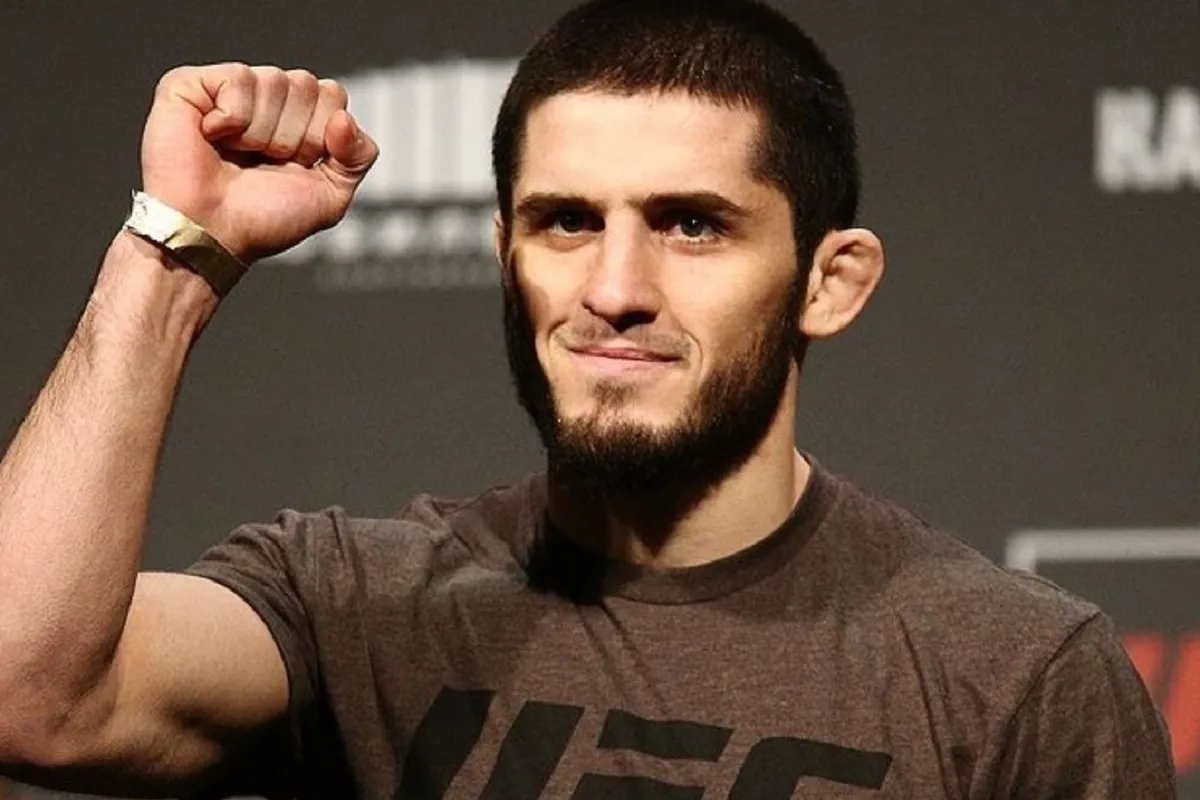Biography and Career of Islam Makhachev
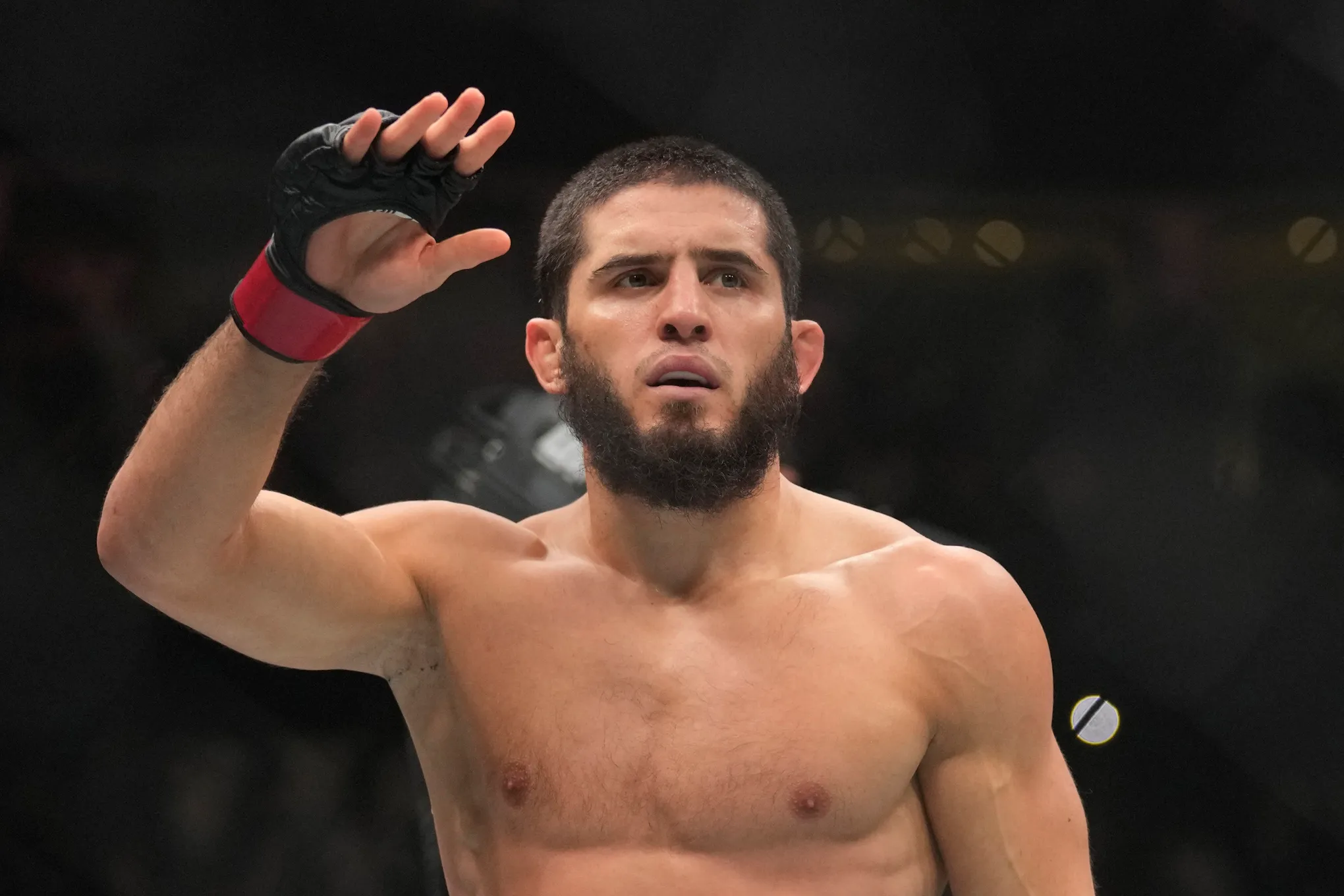
Islam Ramazanovich Makhachev’s story begins in the rugged mountains of Dagestan, where ancient warrior traditions meet modern athletic excellence. Born into a culture that reveres strength, honor, and combat prowess, his journey from a small village boy to UFC lightweight champion embodies the timeless values of perseverance, discipline, and unwavering dedication to martial arts mastery.
Childhood in Dagestan
The Republic of Dagestan, nestled in the North Caucasus region of Russia, has long been recognized as a breeding ground for world-class wrestlers and combat athletes. It was in this harsh yet beautiful landscape that Islam Makhachev spent his formative years, surrounded by the mountains that would shape both his character and his fighting spirit. The region’s extreme climate and challenging terrain naturally forged resilient individuals, and young Islam was no exception to this environmental conditioning.
Growing up in Makhachkala during the 1990s and early 2000s, Islam witnessed firsthand the transformation of his homeland from Soviet republic to Russian federation. This period of change instilled in him adaptability and mental toughness that would later prove invaluable in his professional fighting career. The economic hardships of the era taught him the value of hard work and determination, lessons that his family reinforced through their daily actions and beliefs.
Family Background and Village Upbringing
Islam’s family background reflects the traditional Dagestani values of respect, hard work, and community solidarity. His father, Ramazan, worked tirelessly to provide for his family while instilling in his son the importance of education alongside physical development. The Makhachev household emphasized the balance between intellectual growth and physical strength, believing that true success required excellence in both areas.
The village environment where Islam spent much of his childhood fostered a strong sense of community and mutual support. Neighbors looked out for one another’s children, and the entire community took pride in the achievements of its young people. This collective mentorship approach meant that Islam learned not just from his immediate family, but from the wisdom and experience of numerous village elders who had witnessed decades of change and growth.
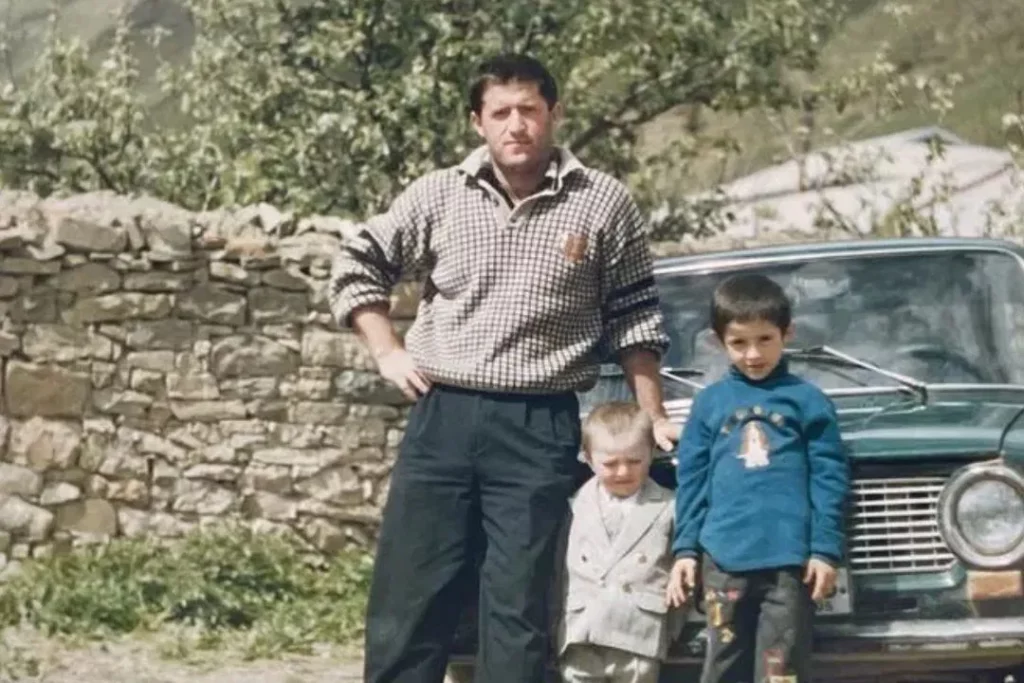
Traditional Dagestani hospitality played a significant role in shaping Islam’s character. The custom of welcoming guests with warmth and generosity, regardless of one’s own circumstances, taught him humility and respect for others. These values would later manifest in his professional career through his respectful treatment of opponents and gracious behavior in victory and defeat.
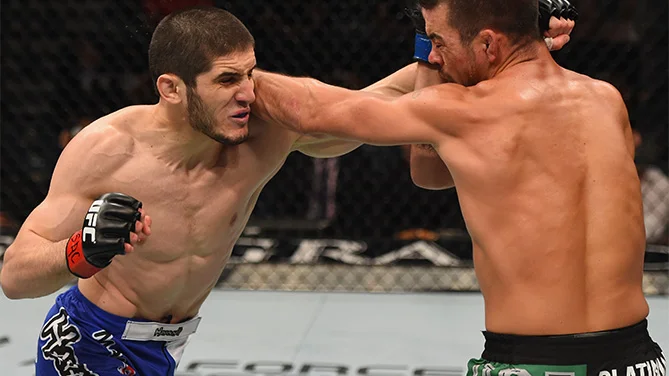
First Steps in Martial Arts
Islam’s introduction to martial arts came naturally in a region where wrestling and combat sports are deeply embedded in the cultural fabric. At the age of six, he began training in freestyle wrestling at a local sports school, joining dozens of other children who saw athletic excellence as a pathway to a better life. The early training was rigorous and demanding, with young athletes learning discipline and technique under the watchful eyes of experienced coaches.
The wrestling halls of Dagestan are legendary for their intensity and the champions they produce. Islam quickly distinguished himself among his peers through his natural athleticism, quick learning ability, and most importantly, his relentless work ethic. While other children might skip training sessions or complain about the difficulty, Islam approached each practice with enthusiasm and determination that impressed his coaches.
His early success in youth wrestling competitions provided the first glimpses of his championship potential. Regional tournaments became stepping stones where Islam learned to handle pressure, overcome adversity, and develop the mental toughness that would define his later career. Each victory built his confidence, while each rare defeat served as motivation to train harder and improve his technique.
Traditions and Values
The martial arts traditions of Dagestan extend far beyond physical techniques, encompassing a comprehensive philosophy of life that emphasizes honor, respect, and continuous self-improvement. Islam absorbed these teachings alongside his technical training, understanding that becoming a true champion required more than just physical skills. The concept of “murshid” – a spiritual guide or mentor – played a crucial role in his development, as experienced fighters took personal interest in nurturing the next generation.
Traditional Dagestani training methods, passed down through generations, formed the foundation of Islam’s athletic development. These included outdoor training in harsh weather conditions, functional strength exercises using natural terrain, and mental conditioning that prepared fighters for the psychological challenges of competition. The integration of these ancient methods with modern training techniques created a unique approach that would later set Islam apart from his international competitors.
Religious and cultural values also shaped Islam’s approach to martial arts. The Islamic principles of discipline, respect for opponents, and humility in victory became integral parts of his fighting philosophy. These values influenced not only how he conducted himself in competition but also how he approached training, preparation, and interaction with fellow athletes and coaches.
Sambo and the Making of a Champion
The transition from freestyle wrestling to combat sambo marked a pivotal moment in Islam Makhachev’s athletic development. Sambo, a martial art developed in the Soviet Union that combines wrestling, judo, and native fighting techniques, provided the perfect bridge between his wrestling foundation and the mixed martial arts career that awaited him. The sport’s emphasis on throws, ground control, and submissions aligned perfectly with his natural abilities and fighting instincts.
Combat sambo training introduced Islam to a more comprehensive fighting system that included striking elements alongside grappling techniques. This broader skillset would prove invaluable when he eventually transitioned to mixed martial arts, as he already possessed experience in multiple combat disciplines. The sambo training environment in Dagestan was notoriously demanding, producing athletes who were not only technically proficient but also mentally unbreakable.
Training Under Abdulmanap Nurmagomedov
The opportunity to train under Abdulmanap Nurmagomedov represented a transformative period in Islam’s development as a martial artist. Abdulmanap, father of future UFC champion Khabib Nurmagomedov, was already established as one of Dagestan’s most respected combat sports coaches. His training methods combined traditional Dagestani techniques with innovative approaches that he had developed through years of coaching experience.
Under Abdulmanap’s guidance, Islam learned not just fighting techniques but also the mental aspects of competition that separate good fighters from great champions. The elder Nurmagomedov emphasized the importance of game planning, strategic thinking, and adaptability in competition. His training camps were legendary for their intensity and attention to detail, with every aspect of a fighter’s preparation carefully planned and executed.
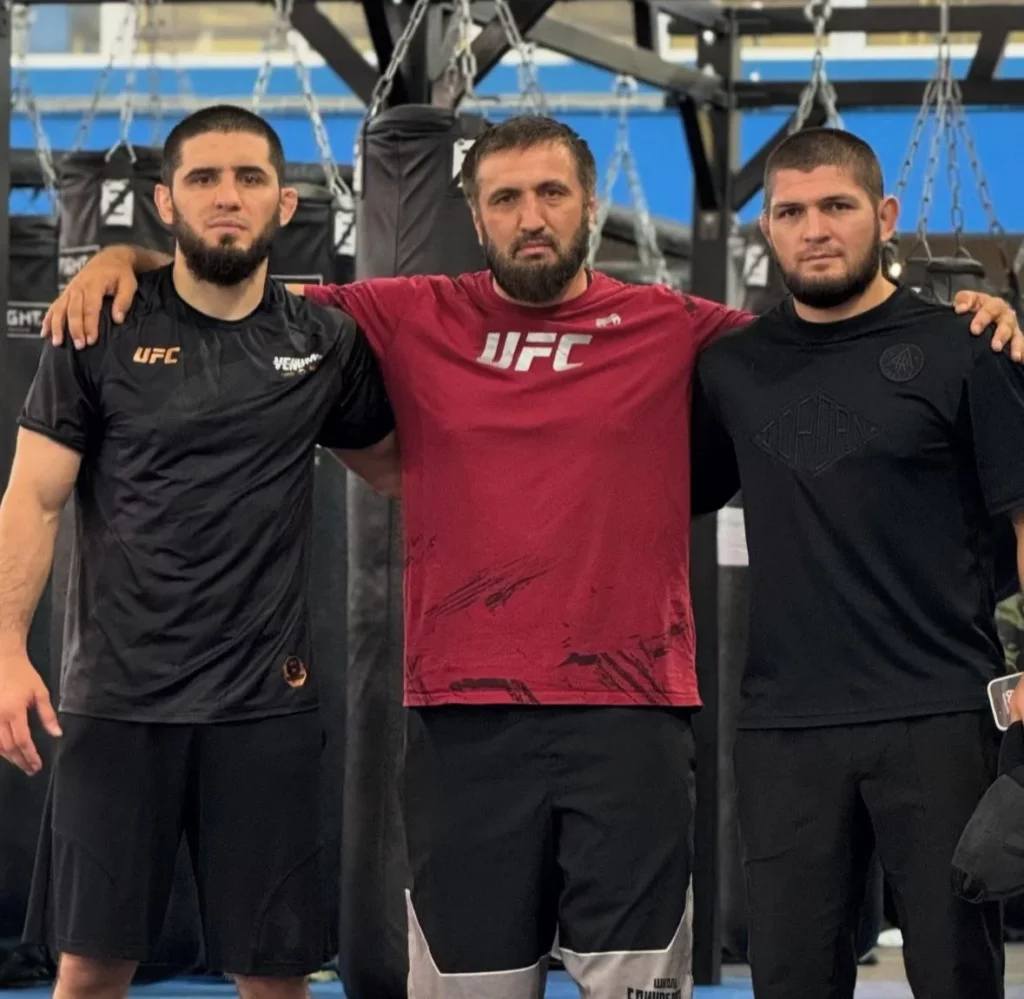
Abdulmanap’s coaching philosophy extended beyond the training room, encompassing life lessons about character, integrity, and the responsibilities that come with athletic success. He taught his students that becoming a champion was not just about winning fights, but about representing their culture, family, and values with honor and dignity. These lessons would prove invaluable as Islam’s career progressed to international competition.
The technical innovations that Abdulmanap brought to traditional Dagestani wrestling created a new generation of fighters who were more well-rounded and adaptable than their predecessors. Islam benefited directly from these innovations, developing a fighting style that combined the best of traditional techniques with modern strategic approaches.
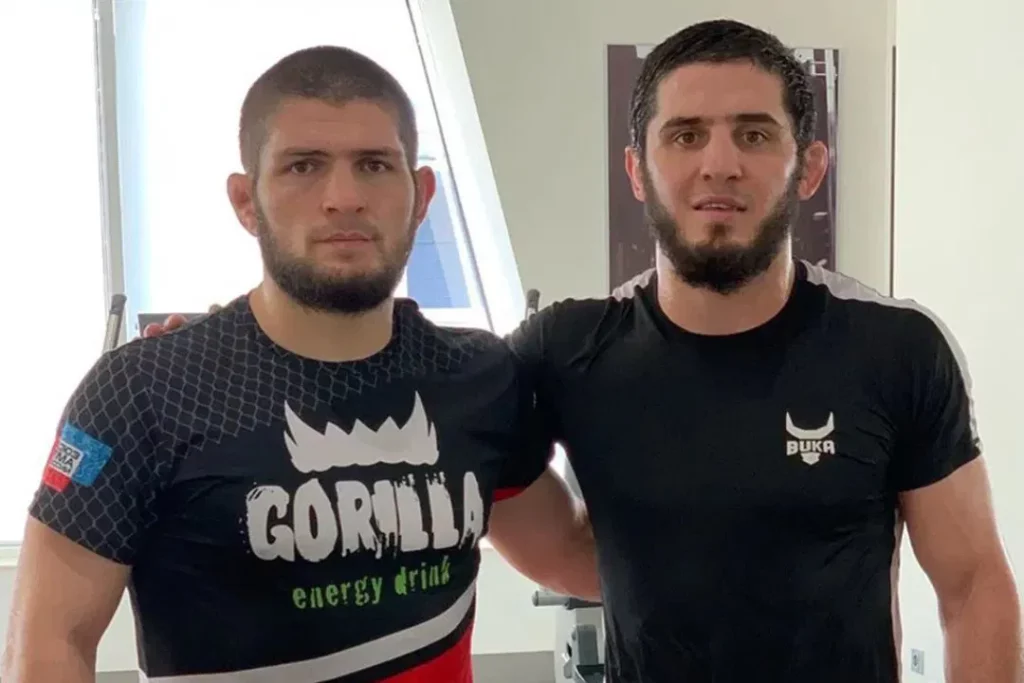
Discipline, Mentorship, and Friendship with Khabib
The friendship between Islam Makhachev and Khabib Nurmagomedov began in the training rooms of Dagestan and evolved into one of the most significant relationships in modern mixed martial arts. Both young men shared similar backgrounds, values, and athletic aspirations, creating a natural bond that was strengthened through countless hours of training together. Their friendship became a source of mutual motivation and improvement, as they pushed each other to reach higher levels of performance.
Training alongside Khabib provided Islam with a unique opportunity to learn from someone who shared his cultural background but was slightly ahead in terms of professional development. Khabib’s early success in regional competitions and eventual signing with the UFC served as both inspiration and roadmap for Islam’s own career progression. The competitive dynamic between the two friends created an environment where mediocrity was never acceptable.
The mentorship aspect of their relationship became more pronounced as Khabib achieved international success. The elder Nurmagomedov son shared insights about professional fighting, media responsibilities, and the challenges of competing on the world stage. This knowledge transfer proved invaluable when Islam eventually faced similar challenges in his own career.
The discipline required to train at the highest levels became a shared commitment between the two friends. Their training sessions were legendary for their intensity, with both fighters pushing each other beyond normal limits. This shared dedication to excellence created a training environment that prepared them for the unique challenges of elite-level competition.
Early Professional Career
Islam Makhachev’s transition from amateur competition to professional mixed martial arts represented a calculated step toward realizing his championship aspirations. His professional debut came at a time when he had already established himself as one of Dagestan’s most promising young fighters, having accumulated extensive experience in sambo and wrestling competitions. The decision to turn professional was made with careful consideration of his readiness and the opportunities available in the rapidly growing world of mixed martial arts.
The early stages of his professional career were characterized by methodical progression and continuous learning. Each fight presented new challenges and opportunities to refine his skills against different types of opponents. The transition from pure grappling sports to mixed martial arts required adaptation and the development of new techniques, particularly in striking and cage awareness.
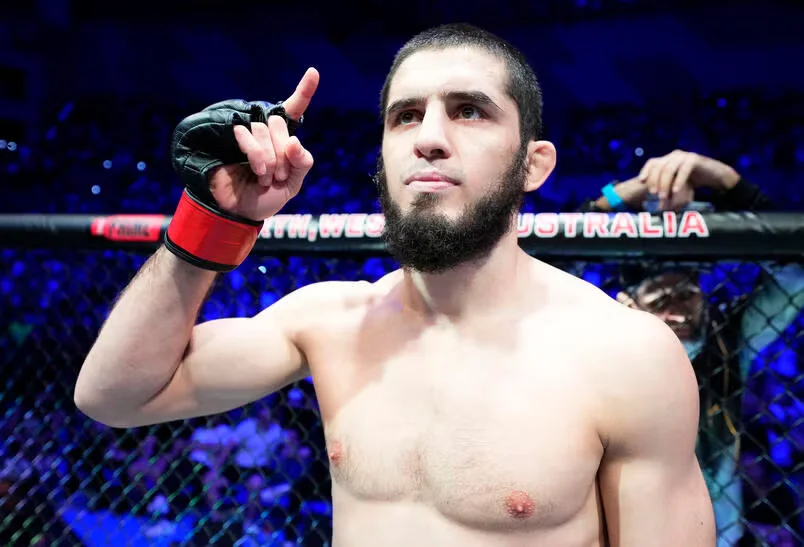
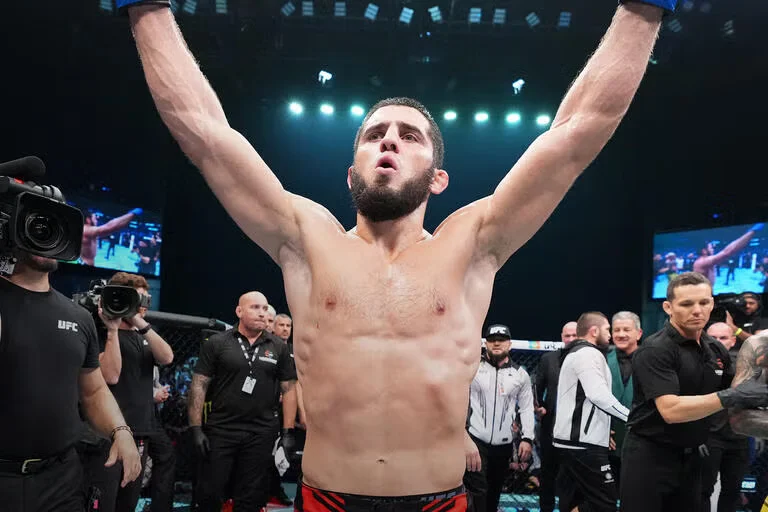
First Fights and Building a Record
Islam’s first professional fights took place in regional promotions throughout Russia and Eastern Europe, providing him with essential experience against varied competition. These early opponents came from different martial arts backgrounds, forcing him to adapt his game plan and develop solutions to different fighting styles. The experience gained from these regional fights proved invaluable in preparing him for higher levels of competition.
Building an impressive professional record required not only winning fights but winning them in convincing fashion. Islam’s early career was marked by dominant performances that showcased his superior grappling skills while gradually revealing improvements in his striking game. Each victory added to his reputation as a rising prospect worthy of attention from major promotions.
The regional fighting scene in Russia during Islam’s early career was highly competitive, featuring numerous talented fighters who were also seeking opportunities to advance to international promotions. Success in this environment required not only technical skill but also mental toughness and strategic intelligence. Islam’s ability to consistently outperform quality opposition demonstrated his championship potential.
UFC Debut and Progression
Islam Makhachev’s arrival in the UFC in 2015 marked the beginning of his journey toward championship gold, though the path would prove more challenging than many anticipated. His debut came with significant expectations, as the UFC had already witnessed the success of other Dagestani fighters. However, Islam understood that success in the world’s premier mixed martial arts organization would require proving himself against elite competition.
The early UFC career presented unique challenges that differed from his previous competition experience. The level of athletes, the media attention, and the pressure of performing on the sport’s biggest stage all contributed to a learning curve that even the most prepared fighters must navigate. Islam’s approach to these challenges reflected the mental toughness and adaptability that had been instilled in him through years of training in Dagestan.
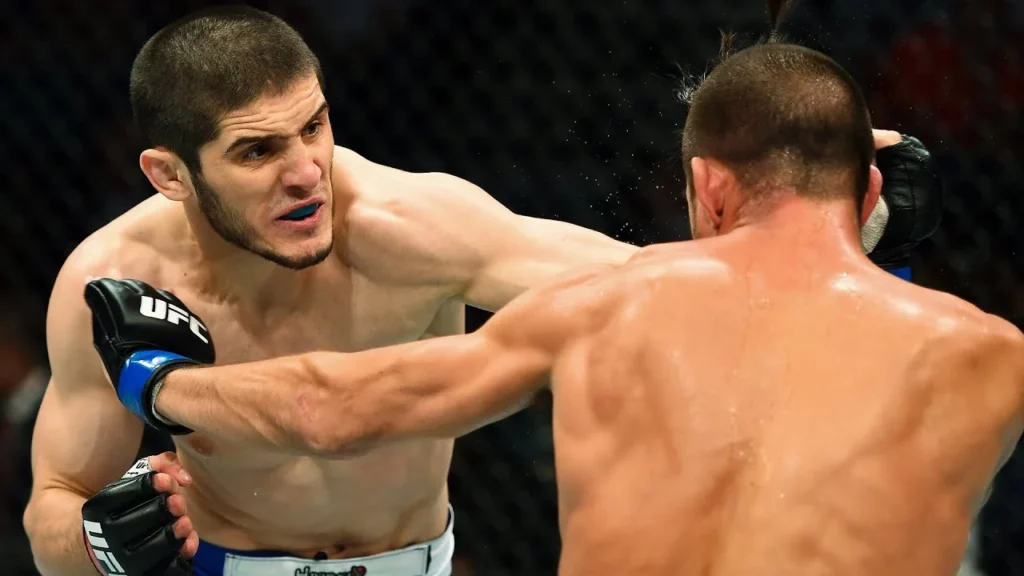
His progression through the UFC rankings was methodical and impressive, with each victory demonstrating growth and refinement in his skills. The opposition quality increased with each fight, testing different aspects of his game and forcing continuous evolution. This progression period was crucial in preparing him for eventual title contention and championship-level competition.
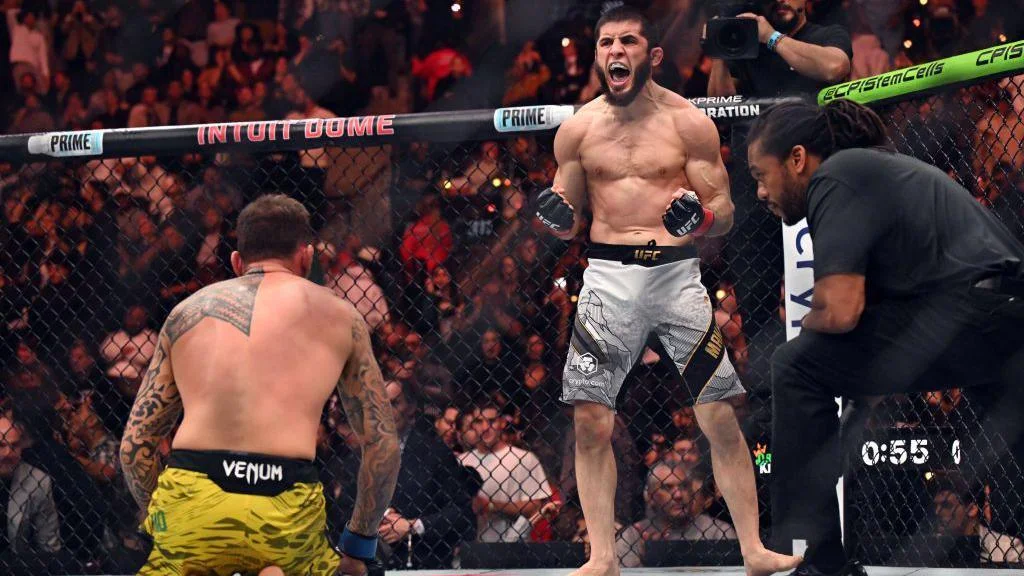
Breaking into the World Stage
The transition from regional prospect to international contender required Islam to adapt not only his fighting approach but also his understanding of the global mixed martial arts landscape. Success on the world stage demanded proficiency in media obligations, international travel, and competing in front of diverse audiences. Islam’s natural charisma and respectful demeanor served him well in these new responsibilities.
Breaking into title contention required decisive victories against established contenders and former champions. Each high-profile victory added legitimacy to his championship aspirations while demonstrating his ability to perform under increasing pressure and scrutiny. The world stage also provided opportunities to showcase Dagestani fighting culture to a global audience.
The international exposure that came with world-class competition brought new opportunities and responsibilities. Islam became not just a fighter but an ambassador for his culture and values, representing Dagestan and its martial arts traditions on the global stage. This representation carried additional motivation and pressure that he embraced as part of his championship journey.
Achieving UFC Glory
The culmination of Islam Makhachev’s journey to UFC championship gold represented the fulfillment of a lifelong dream and the validation of years of dedicated preparation. His championship victory was not just a personal achievement but a triumph for the entire Dagestani fighting community that had supported his development from childhood through professional success.
The path to championship glory required overcoming numerous challenges, setbacks, and moments of doubt. Each obstacle encountered along the way contributed to his growth as both a fighter and a person, building the resilience and determination necessary to compete at the highest levels. The championship achievement represented not just physical dominance but also mental and emotional mastery.
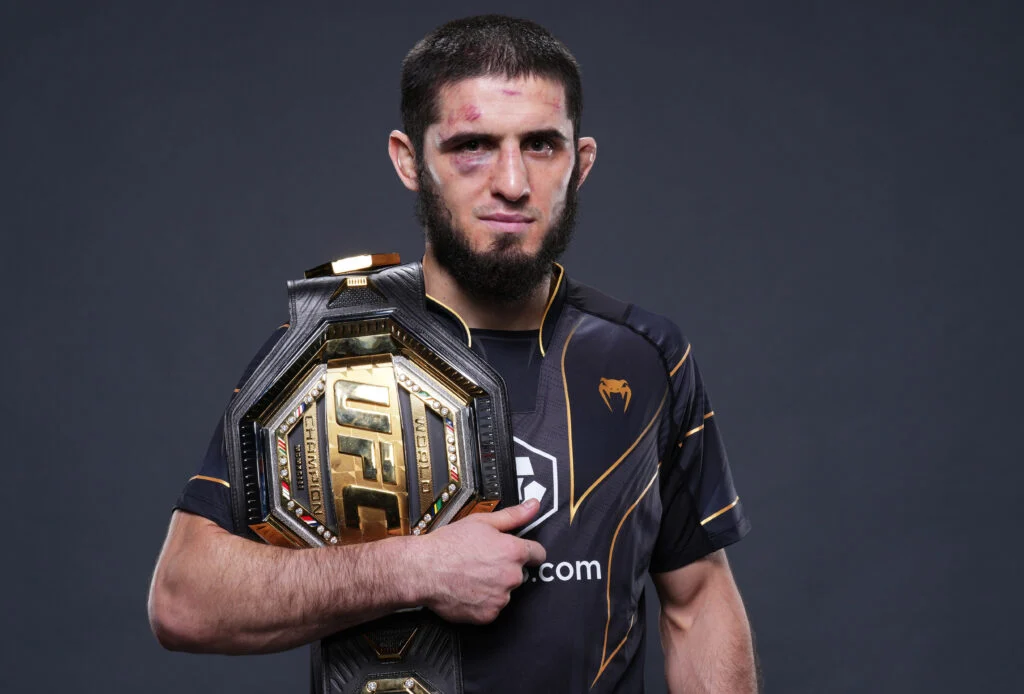
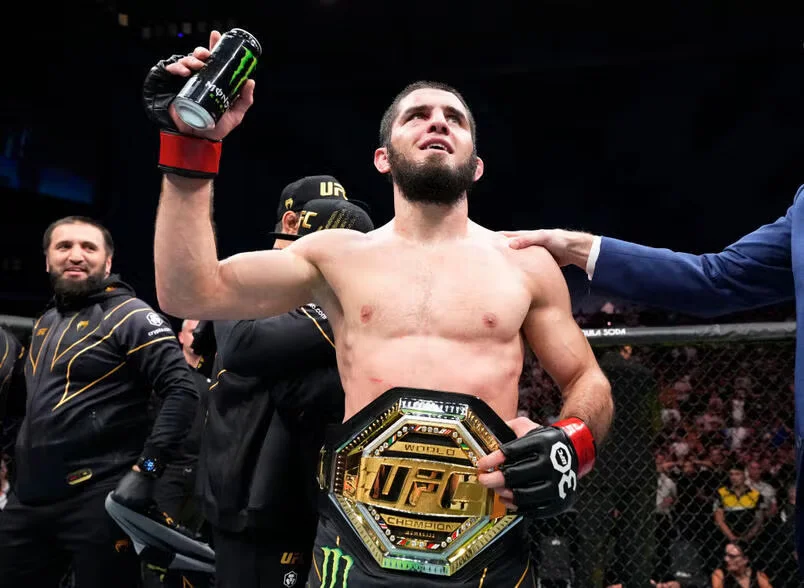
Championship Journey
Islam’s championship journey began long before his actual title fight, encompassing years of preparation, strategic planning, and gradual progression through the ranks of elite competition. The journey required patience, as premature title shots often result in unprepared fighters losing opportunities that may never return. His methodical approach to title contention demonstrated the strategic thinking that would later characterize his championship reign.
The championship journey also involved building a comprehensive team of coaches, training partners, and support staff who could provide the resources necessary for elite-level preparation. The integration of his traditional Dagestani training with modern sports science and coaching methods created a preparation approach that maximized his natural abilities while addressing any weaknesses.
Mental preparation for championship competition required developing the psychological tools necessary to handle the unique pressures of title fights. The ability to remain calm under extreme pressure, execute game plans under adversity, and perform at peak levels when everything is at stake distinguishes champions from contenders.
Signature Wins and Title Fight
Islam Makhachev’s signature victories on his path to championship gold each contributed unique elements to his legacy and demonstrated different aspects of his elite-level abilities. These performances showcased not only his technical skills but also his ability to rise to the occasion when facing the sport’s most accomplished competitors.
His championship victory over Charles Oliveira at UFC 280 represented the pinnacle of technical achievement, as he successfully defeated one of the sport’s most dangerous submission specialists using superior grappling technique. The victory demonstrated that his years of preparation had prepared him for the unique challenges of championship competition.
The subsequent title defenses further solidified his championship credentials, proving that his initial victory was not fortunate but rather the result of sustained excellence. Each defense presented different challenges and required adaptations that showcased his versatility and championship mentality. These performances established him not just as a champion but as a dominant force in the lightweight division.
